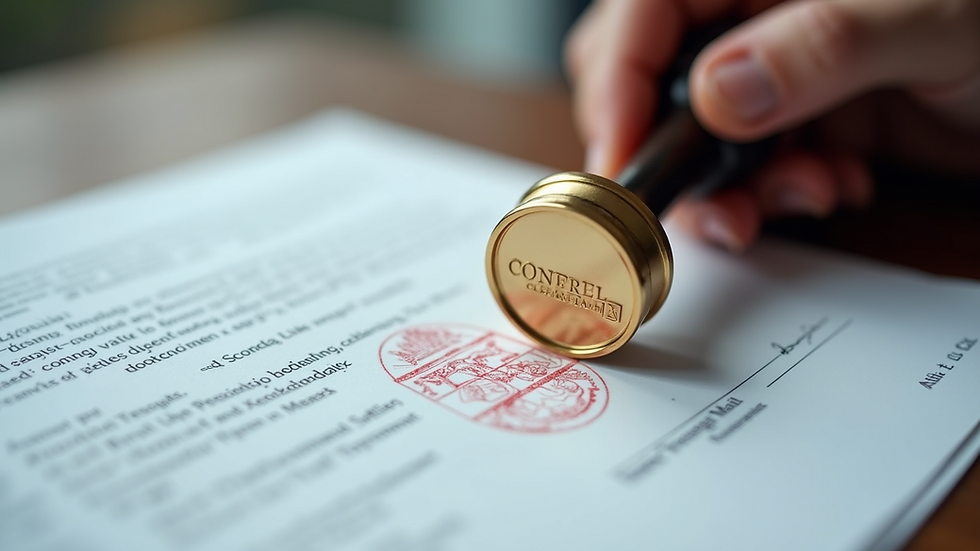Understanding Satisfactory Evidence Requirements for Notarization in California
- Yuriko Jacobs

- May 27
- 2 min read
Notarization is a critical step in the completion of legal and personal documents. It helps ensure that these documents are authentic and properly executed. In California, notaries are key players in this process. But what does satisfactory evidence mean in this context? This article will clarify the requirements for satisfactory evidence in California, so clients can prepare effectively for notarization.
What is Satisfactory Evidence?
Satisfactory evidence refers to the identification that a notary must obtain to confirm a person's identity. California law specifies that acceptable forms of satisfactory evidence include government-issued identification cards and documents.
When a signer presents a document, it must include not only a photo but also a signature and physical description. For example, a California driver’s license provides all necessary information in one place. By adhering to these standards, notaries can avoid accepting fraudulent or incomplete identification.

Acceptable Forms of Identification
Individuals seeking notarization must present a valid ID that meets specific criteria. The California driver’s license or state identification card is the most commonly accepted form. However, other forms can also qualify, as long as they meet legal requirements.
Key examples include:
U.S. Passport: An easily recognized form of ID, it is widely accepted because of its thorough verification process.
Military Identification: Often used by service members, this card is another valid form.
Foreign Passport: This can be accepted too, provided it is accompanied by an English translation.
It is crucial to ensure that these documents are not expired. Notaries need to see IDs that display clear details for identification, ensuring compliance with satisfactory evidence regulations.
Witnesses as Satisfactory Evidence
If a signer does not have the required form of ID, California law allows the use of witnesses. The witness must also provide satisfactory evidence of their identity, adhering to the aforementioned requirements. For instance, a trusted colleague or friend who has a valid driver's license can confirm the identity of the signer.
Moreover, the witness should not have any vested interest in the transaction, ensuring the notarization remains impartial and valid. This alternative arrangement gives individuals extra options for identity verification when needed, reinforcing the integrity of the notarization process.
Your Role as a Client
As a client seeking notarization, being prepared is essential. Bring a valid form of identification that meets the satisfactory evidence criteria. This preparation helps minimize delays. According to surveys, individuals who arrive with the proper documents report a 30% faster notarization process.
To streamline your experience:
Check Expiry Dates: Ensure that your IDs are current. An expired ID will complicate the notarization process.
Research Acceptable Forms: Familiarize yourself with the types of identification that are acceptable. Knowing what to expect can make the process smoother.

Final Thoughts
Understanding the satisfactory evidence requirements for notarization in California can speed up your experience significantly. Being informed about valid identification enhances your readiness and aids the notary in carrying out their duties.
By following these guidelines, clients can tackle their notarization needs with assurance, ensuring all documents comply with California law. If you have questions, it is always a good idea to consult with your notary in advance. Taking these proactive steps regarding satisfactory evidence will lead to a smooth and efficient notarization experience.




Comentarios